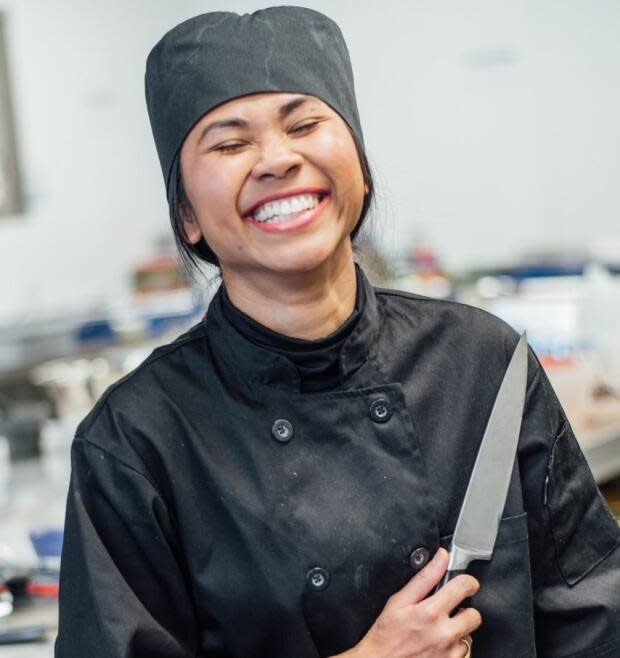Thai one on: How this woman is changing tastebuds in St. John's
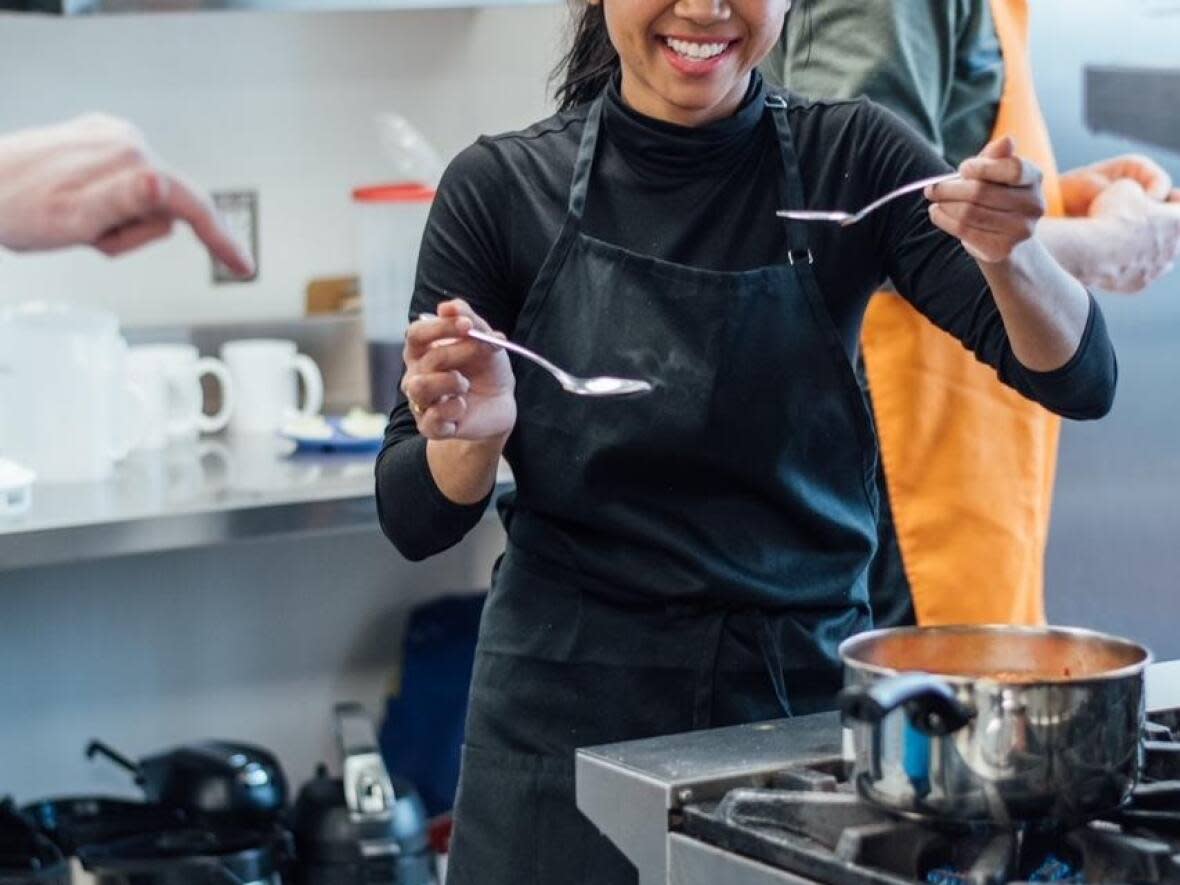

It was Invercargill all over again.
When Orathai Chongmee stepped off the plane in St. John's in 2007 to start her first semester at MUN, she couldn't help but worry that she was — once again — being dumped off by the ocean in the middle of nowhere..
After spending Grade 10 at the southernmost tip of New Zealand (Chongmee does not recommend Invercargill as a place to go on holiday) and her high school years just outside Brisbane, Australia, one might ask how the Bangkok-raised sociology student ended up opening one of the most popular food stalls at the St. John's Farmers' Market.
Well, MUN was the first university to accept her.
Fifteen years, a degree and a little boy later, Chongmee is the owner of Yes, Thai! Kitchen, an amalgamation of her food stall and southern Thai cooking classes.
We chatted over coffee about the St. John's dining scene, her (future) restaurant philosophy and her love for shrimp paste.
The restaurant peace of mind(set)
The logical step for many food stall owners — and one of my first questions for Chongmee — was "when are you going to open a restaurant?", a question I'm sure she regularly gets.
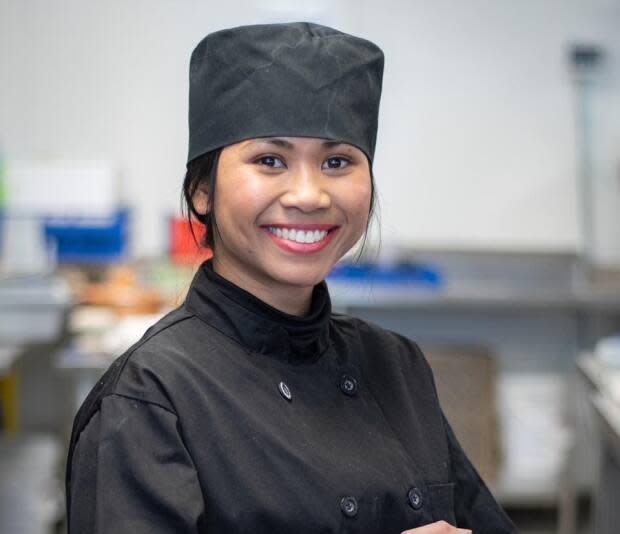
The answer? Well, the short one is "not yet." The long one involves high rents and an acute sense of self-awareness about one's mental health.
Chongmee finished a degree at MUN in sociology and psychology, with hopes of pursuing social work, but got a job in the non-profit sector almost immediately. After the birth of her son almost five years ago, she struggled with postpartum depression and couldn't face going back to work.
"People talked to me about their experiences, their life, and you can't really tell them what you're going through. I found it really hard," she said.
Chongmee's journey to cooking for the public came not only from the desire to cook for herself but also because of her understanding of her limitations when it came to mental health. She struggled with her own issues and felt she couldn't provide the care and mental stability her clients at Stella's Circle needed.
Instead of providing love and comfort through social work, Chongmee chose to do it through the Thai dishes she loved and missed so much.
Ironically, she has now made her livelihood devoted to traditional Thai food, something her parents were so focused on her moving away from when they sent her to school abroad.
To market, to market
When Chongmee arrived in St. John's in 2007, there weren't many international options. Even sushi was relatively new in the city, and she says she often would find herself eating alone at Sun Sushi on Duckworth Street, unable to convince other students to join her.
So, much like when she would cook for her homestay family in Invercargill, she started cooking Thai curries, soups and salads, to keep a piece of home with her.
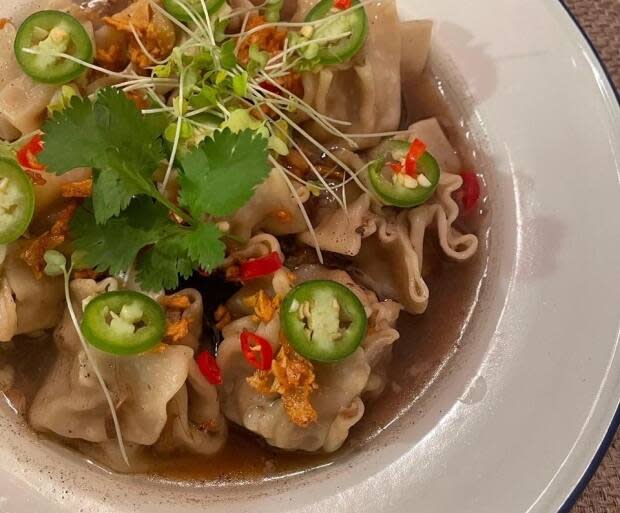
While Chongmee was on maternity leave, her husband Brad spotted an advertisement for food vendors at the new St. John's Farmer's Market location on Freshwater Road. He, along with her mother who was visiting to help with the new baby, encouraged her to apply.
"That's when I started my business. It's self-indulgent really because I couldn't find the food I loved," she said. Chongmee was considerate with her answer when I asked her how she learned to cook.
"It sounds really cliche, but when people ask me how I learned to cook, I say my nan and my mom. But it's true. In my hometown, it's just the way. And my dad always said, 'you have to learn how to cook,' I grew up in that mentality," she explained.
Chomgmee started serving her first curries at the market in 2018 and started teaching her regulars to do the same with the launch of her cooking classes in 2019.
Now she has a lineup every week for her ever-changing menu filled with Thai curries, sweet and salty pork, or pad thai — Chongmee estimates she serves at least 50 people a week.
"I judge by my rice; I have a big rice cooker — it feeds 50 or 60 people," she said.
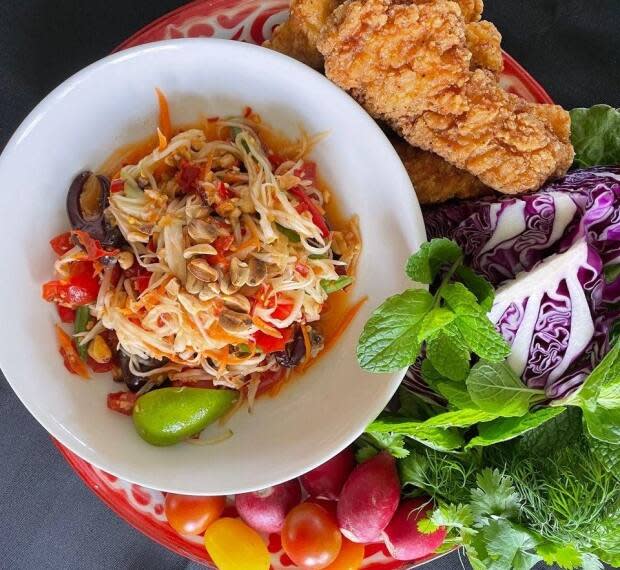
Chongmee focuses on the cuisine of her father, who hails from the south of Thailand, where dishes are much spicier. While most Thai restaurants across Canada serve up a more homogenized version of three or four popular dishes (pad thai, khoa soi, tom yum etc.) Chongmee wants to educate her diners on the breadth of regional varieties in Thai cuisine.
This should come as a no-brainer, but Thailand's curries also vary greatly, like in Canada, where there is an extreme variation in traditional dishes from coast to coast.
"If you have a green curry in Samui," she said, referring to an island in the south of Thailand, "and then you go have a green curry in Bangkok, it's two different curries."
Substitution is fusion
In addition to the pursuit of the eventual perfect restaurant space, Chongmee is committed to teaching traditional Thai methods of cooking and the cuisine's ingredients.
She refuses to teach the much-requested pad thai in her cooking classes because she thinks it's "too easy to cook." Instead, she focused on the deep, rich curry cannon that Thailand is known for, and highlights the importance of the pastes and their deliverance of umami that is beloved around the world.
"My target market is 95 per cent repeat customers," she said.
"My food might not be for everybody. I keep it traditional. Certain things are different, like shrimp paste. Supposedly every Thai curry has shrimp paste in it. I teach that in class. In my class, it's not super spicy, but I teach the traditional ingredients."
We talked at length about the importance of pastes in Thai cooking. Many traditional ingredients are hard to come by in St. John's, so she ships in the curry pastes direct from Bangkok, along with thua nao (ถั่วเน่า), a fermented soybean widely used in northern Thai dishes like Khanom Jeen Nam Ngiao, and most northern condiments.
She sings the praises of Nam Prik Kapi, a Thai sauce made with fermented shrimp paste, chillies and lime juice — it's Chongmee's favourite condiment. When I visited her at the market one Saturday, she gave me a dried fish and chili condiment her friend had just brought back from Thailand.
It was crunchy, salty and filled with that flavourful funk Thai food is known for.
Even something as simple as coconut milk is drastically different here in Canada. She didn't grow up with cans of coconut milk like what's available now. They had real coconuts they got at the market, which have a different taste.
Setting up a restaurant, and a life
Chongmee was looking at a restaurant space right before the pandemic and was about to sign the lease.
For some reason, it didn't feel right, and the loans weren't working out, but she now views what happened as lucky.
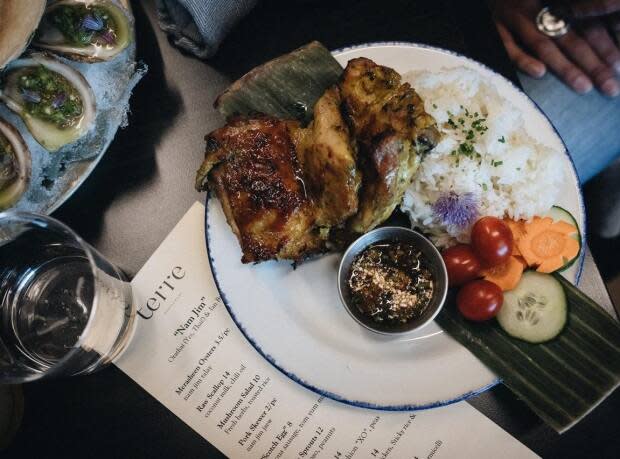
Her search continues for a space somewhere in the St. John's metro area.
"Probably not downtown. My food is not fusion fun, not for a night out. I just want it to be like a family meal," Chomgmee said.
Her ideal restaurant is a place for big family-style plates and is kid-friendly — the kind of place you go to fill your cup, and your stomach.
Until that happens, you can find her ladling up delicious Thai dishes every week at the market, or teaching cooking classes.
She's also working with her sister in Thailand to start doing some day tours of Bangkok's hidden gems.
Chongmee's vigour for teaching Thai cooking techniques is contagious — she taught me a thing or 10 about Thai shrimp paste.
"When you think of Thailand, think of me," she said.
